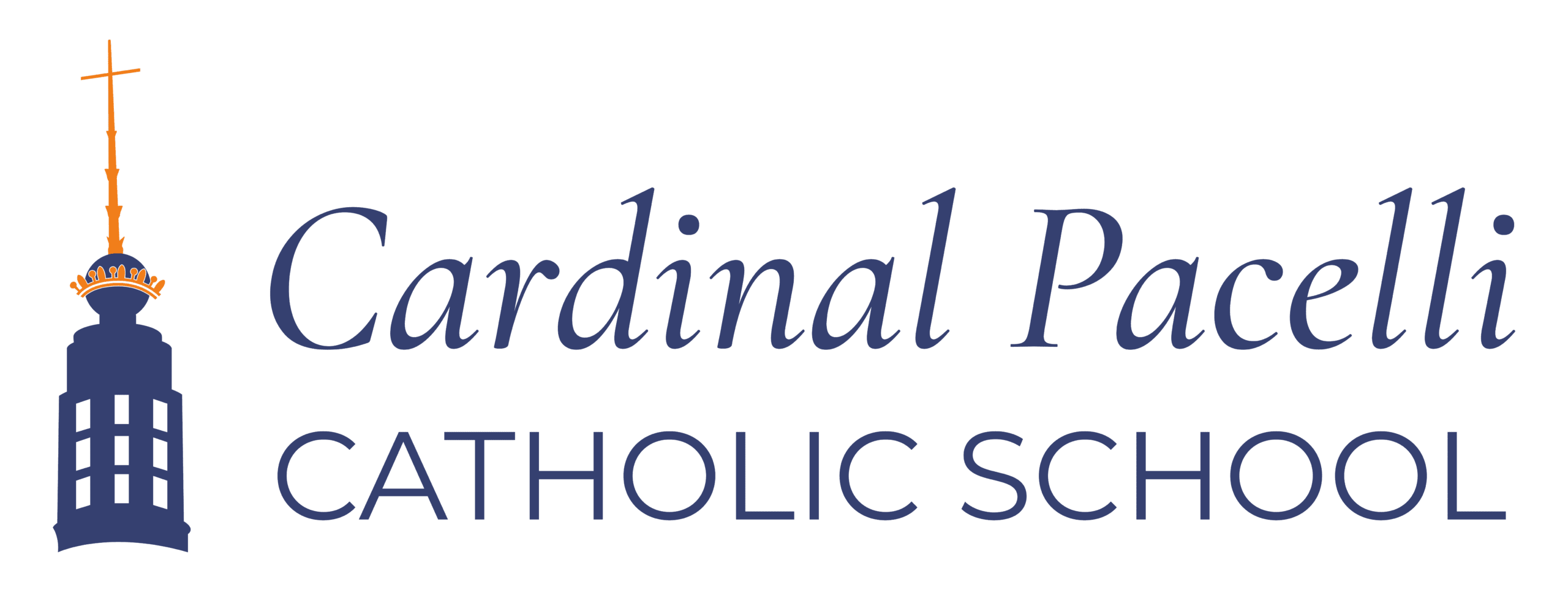The Language Arts Curriculum is focused around the four elements of language: reading, writing, speaking, and listening; all aligned with the Ohio Learning Standards and Graded Course of Study of the Archdiocese of Cincinnati Department of Education.
Grades K-2 utilize the Superkids Reading Series developed by The Rowland Reading Foundation.
Grades 3-5 use Wonders developed by McGraw-Hill. Grammar instruction takes place through the Sadlier Grammar Workshop program in grades 3-4 and Voyages in English in grades 5-8. Students learn valuable revision skills throughout these programs. Vocabulary, spelling, and comprehension are taught in the context of literature presented in class. Teachers incorporate a variety of genres in the reading program, including selections from textbooks, novels, short stories, and current events.
Students in the upper grades are assigned independent books and are assessed through projects and reports. Responses to literature take place through creative journaling, class discussion, and formal writing. The writing process develops students’ critical thinking skills necessary to be a successful writer. Our literacy program, in conjunction with teacher collaboration, successfully meets the needs of each student fostering critical thinking by integrating technology into the curriculum and providing genuine learning experiences.
Students in grades 5-6, practice writing skills through generating a personal narrative essay, a how-to essay, an explanatory essay, and a persuasive essay. Students in grades 7-8, practice their writing skills through generating a literary analysis, creative writing pieces, and research papers. By the end of their time at Cardinal Pacelli, students master developing a thesis, creating topic sentences for various assignments, using transitional phrases, and building paragraphs with voice, organization, and formal sentence structures. Students are able to apply grammar rules and skills practiced all year within their writing.
Conscientious reading skills such as critical thinking, analyzing different texts, fluency, vocabulary, and comprehension are gained by reading novels, poetry, short stories, and informational texts. Students exercise citing textual evidence to support claims. Students also practice identifying the various components of a piece of writing, such as the main idea, author’s point of view, the plot diagram, characterization, symbolism, theme, conflict, and the tone of the piece.
Students in the Jr. High have multiple opportunities to put their writing into practice and develop their literary voice and writing style before graduation. Students are given a variety of assignments to span each type of writing asked of them in high school. Notable projects include: generational studies, interdisciplinary thematic units, book reports, and research and persuasive work including in-text citations. During class, students are asked to connect what they read to past lessons and personal connections through annotations in addition to expressing their ideas clearly. Students practice peer editing, oral presentation, and formatting skills during class and at home.
